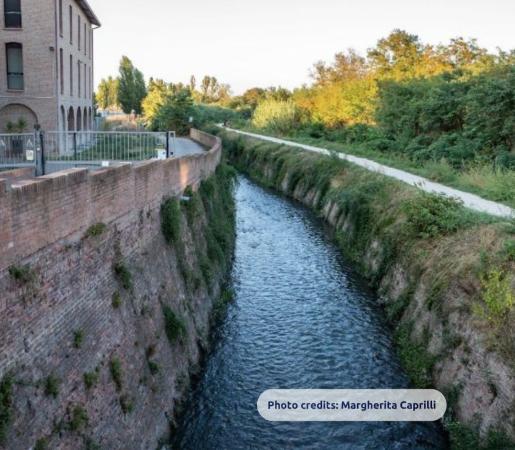
Bologna
TALEA - TALEA
About the project
Bologna, along with the Emilia-Romagna region, has been significantly affected by rising temperatures, making climate resilience a top priority. In response, to help solve problems caused by urban heat waves and urban heat islands for all citizens, especially vulnerable people, the city decided to introduce TALEA Green Cells (TGC).
TGC is a spatial unit that serves as connective tissue in both the physical and digital realms. The project’s innovation and originality lies in the unique integration of its components and impact-making potential on different scales. TALEA combines various types of nature-based solutions with creative technological innovation, and site-specific, data-based monitoring. It harnesses the power of citizen-science data collection to lead the green and digital transition.
TGCs are re-composable, replicable and can be attached to one another. Different combinations of TGCs will be implemented in three areas, selected according to Bologna’s participatory budgeting and vulnerability mapping.
The new green cells not only provide climate shelters, but also incorporate new aesthetic, social and cultural values, as well as co-designed climate-just services.
At the macro-scale, TGC will support the reintegration of urban areas into a continuous Green Infrastructure.
TALEA’s data and results will converge in the Bologna Digital Twin, expanding their impact, scalability and integration.
Challenges
Heat islands and heat waves pose a serious threat to population health and wellbeing in Bologna. Climate change is also a factor in exacerbating social inequalities, as vulnerable groups suffer most from its consequences. In this context there is a need to support the administration's strategy to strengthen the city's resilience and improve social justice.
-
A combination of heat islands and heat waves pose serious threats to health and wellbeing: the city needs to improve its urban adaptation to climate change.
-
Certain parts of the city are underused and isolated. Regeneration of these urban areas is necessary to support their reintegration in a continuous green infrastructure.
-
A key challenge in implementing the city’s resilience and social justice strategy is to improve citizens’ wellbeing, especially among vulnerable groups who tend to have less access to green spaces.
Proposed solutions
TALEA is a green urban regeneration project focused on reducing the impacts of climate change by integrating and strengthening the city’s green infrastructure. Actions involve implementing five Green Cells in three areas of the city, co-designed with citizens and stakeholders, using a data-driven approach. They will provide climate shelters during extreme heat events, reconnect the pre-existing urban green infrastructure, and become new social hubs.
-
Create five TALEA Green Cells: adaptable, scalable minimum ecological units, each covering an area of 100x100 metres. TALEA combines various nature-based solutions with creative technological innovation, and site-specific and data-based monitoring.
-
Run a series of pilots employing a combination of co-creative and scenario-based activities for residents, those especially exposed to higher climate and general fragility, local associations, school/university communities as well as private actors. This supports both a socially just transition and the development of a sense of community and belonging to the space.
-
Through TALEA's Green Cells, benefit from digital technologies and harness the power of citizen-science data collection to lead the green and digital transition.
Milestones
Guidance provided to all partners for project implementation
A new, living digital civic tool for community mapping
Five Green Cells implemented in three pilot areas